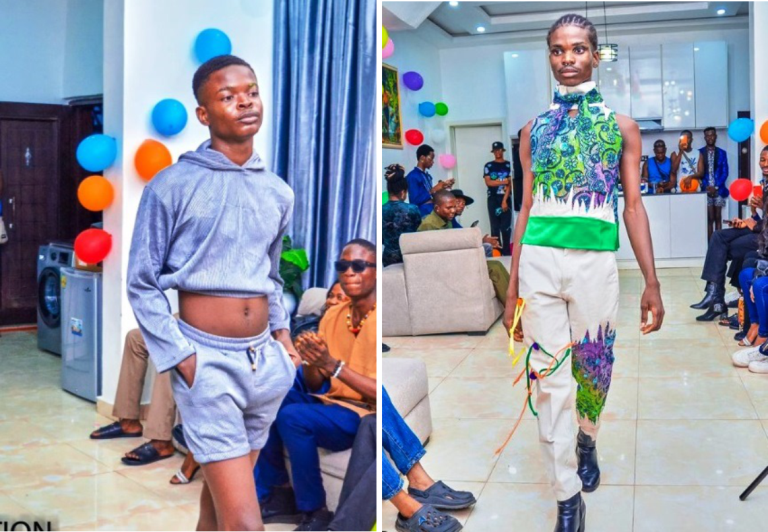In spite of the hostile environment faced by LGBT individuals in Nigeria, they remain defiant and resilient, continuously finding innovative ways to combat inequality and redefine their realities.
By Mike Daemon

Photo Source: House of Colours Instagram.
House of Colours, an emerging LGBTIQ+ group, is at the forefront of this innovative activism. The group is dedicated to using fashion as a powerful tool to dismantle negative stereotypes and promote LGBT inclusivity and visibility in the country.
Founded in 2022 by David O. Awolesi, also known as Smithofcolours, alongside their partner Jamal King, who serves as the group’s Creative Director, House of Colours describes itself as an independent initiative.
Prior to formalizing its activities as a fashion initiative, House of Colours was renowned for hosting community-themed parties in Lagos. However, they discontinued these events in 2022, realizing that there was much more they could do to support the community.
LGBT people in Nigeria face various forms of discrimination, resulting in limited access to opportunities and resources needed to pursue their chosen careers. King says that House of Colours focuses on working with LGBT individuals interested in fashion.
“As a group, part of our mission is to give LGBT people with an interest in fashion the visibility and platform to challenge ongoing misperceptions about the Nigerian queer community. We want to prove that we have the capacity and resources here and that we are not solely defined by cross-dressing or Instagram skits,” said King.
To showcase its mission, House of Colours recently organized the groundbreaking Pride Fashion Fest Runway Show 1.0. This pioneering Pride runway fashion show featured queer and ally talents from the modeling and fashion design industries.
Held in early June in Lagos, the event provided LGBT and ally models and designers the opportunity to showcase their work. It also fostered collaboration with various human rights groups and organizations.
However, like many small-scale LGBT initiatives, House of Colours encounters challenges in securing support for their work.
“The team had a tough time securing funding. Although we did receive some cash support from community-based organizations, we were unable to obtain the necessary funding. We even created a GoFundMe fundraiser at one point, but it, unfortunately, didn’t yield the desired results. Many of the groups and organizations we approached considered our dream unfeasible or unrealistic, especially given the current climes under which the Nigerian Same-sex Marriage Prohibition Act laws abide. They also expected substantial financial contributions, despite our emphasis that this project was designed for and with the community in mind. Nonetheless, we are grateful for the success of the event and remain committed to our work,” King says.
Despite these obstacles, House of Colours and other LGBT Nigerians continue to push boundaries and reshape society’s perception of the queer community through their creative endeavors. Their unwavering spirit and dedication to change offer hope for a future where inclusivity and acceptance prevail over discrimination and prejudice in Nigeria.
COMMENTS